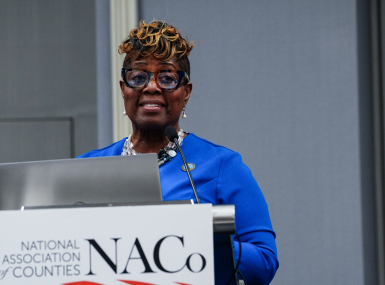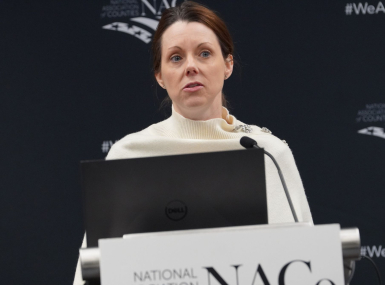Support the Community Services Block Grant (CSBG)

Author

Emma Conover

Kevin Moore
Upcoming Events
Related News
ACTION NEEDED
Urge your Members of Congress to reauthorize and fully fund the Community Services Block Grant (CSBG) to ensure the program is effectively meeting the current needs of local communities.
BACKGROUND
CSBG supports local agencies in designing and implementing anti-poverty programs tailored to an individual community’s needs, with a focus on housing, health, employment, income and civic engagement outcomes. Most CSBG funding is distributed to states, which must pass at least 90 percent of funds to a network of nearly 1,000 Community Action Agencies (CAAs) in 99 percent of America’s counties.
CAAs are local organizations (primarily private nonprofits, though 159 grantees are units of local government) with the mission of reducing poverty through locally designed and delivered programs and services. Local elected officials or their representatives must (by law) make up one-third of each CAA board of directors. These boards are responsible for ensuring that agencies continue to assess and respond to the causes and conditions of poverty in their communities, achieve anticipated family and community outcomes and operate in an administratively and fiscally sound manner. Along with CSBG, CAAs receive funding from federal, state and local sources, including county governments.
According to a report from the National Association for State Community Services Programs (NASCSP), the CSBG network served 10.7 million
individuals living in poverty, including 3.3 million children in FY 2023. The
network reported more than 397,000 employment outcomes (such as
obtaining and maintaining a job, increasing income and obtaining benefits, over 1 million education outcomes (such as improved literacy skills, school readiness and obtaining additional education and diplomas), more than 2.3 million housing outcomes (such as obtaining and maintaining housing, avoiding eviction or foreclosure and reducing energy burden), more than 4 million health outcomes (such as increasing nutrition skills, improving physical or mental health and living independently) 220,000 civic engagement outcomes (such as increasing leadership skills and improving social networks) and nearly 364,000 income outcomes (maintaining a budget, opening a savings account, increasing assets and net worth and improving financial wellbeing).
For the past three Fiscal Years, Congress has provided $770 million in funding for CSBG. However, Congress has not reauthorized the program since 1998, making it overdue for substantive changes that could increase its ability to effectively serve vulnerable county residents.
KEY TALKING POINTS
- The Community Services Block Grant (CSBG) distributes funds to local agencies to support activities that have a measurable and potentially major impact on the causes of poverty.
- States must by law pass 90 percent of CSBG funds to eligible local entities. The program operates in 99 percent of the nation’s counties through a network of nearly 1,000 eligible public or private entities.
- Through its boards involving the public sector, the private sector and the community, the Community Services Block Grant (CSBG) represents a unique and effective partnership with counties, states, the federal government and community organizations.
- CSBG allows Community Action Agencies (CAAs) to design and implement anti-poverty programs tailored to an individual community’s needs, with a focus on housing, health, employment, income and civic engagement outcomes.
- In FY 2023, the CSBG network served 10.7 million individuals living in poverty, including 3.3 million children.
- While CSBG continues to receive funding through the annual appropriations process, it has not been reauthorized since 1998. Counties support reauthorization of CSBG to ensure the program is meeting the current needs of local communities.





